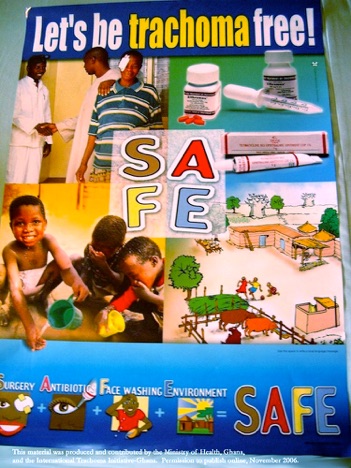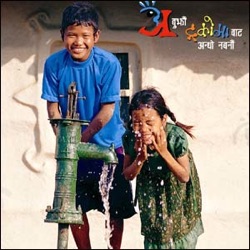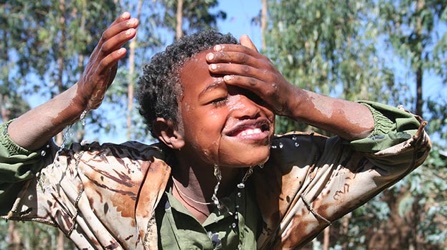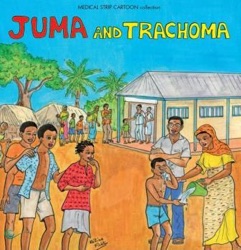If you're traveling to parts of the world where trachoma is endemic, be sure to practice good hygiene to prevent infection.
If you've been treated for trachoma with antibiotics or surgery, reinfection is always a concern. For your protection and for the safety of others, be sure that family members or others you live with are screened and, if necessary, treated for trachoma.
Proper hygiene practices include:
•Face washing. Keeping faces clean, especially children's, can help break the cycle of reinfection.
•Controlling flies. Reducing fly populations can help eliminate a major source of transmission.
•Proper waste management. Properly disposing animal and human waste can eliminate breeding grounds for flies.
•Improved access to water. Having a fresh water source nearby can help improve hygienic conditions.
Although no vaccine is available, trachoma prevention is possible. For instance, trachoma virtually disappeared in the United States by the 1950s due to improved sanitation and living conditions. The disease has also almost disappeared in certain countries, such as Morocco, where health organizations have been active in public education and have helped promote therapies known to cure the disease.
Through health education and medical interventions, the World Health Organization is committed to eliminating blinding trachoma from the world by 2020.





De Lairessestraat 59 1071 NT Amsterdam 020-679 71 55 omca@me.com www.omca.nl


Amsterdam Eye Hospital
Oogziekenhuis Amsterdam

